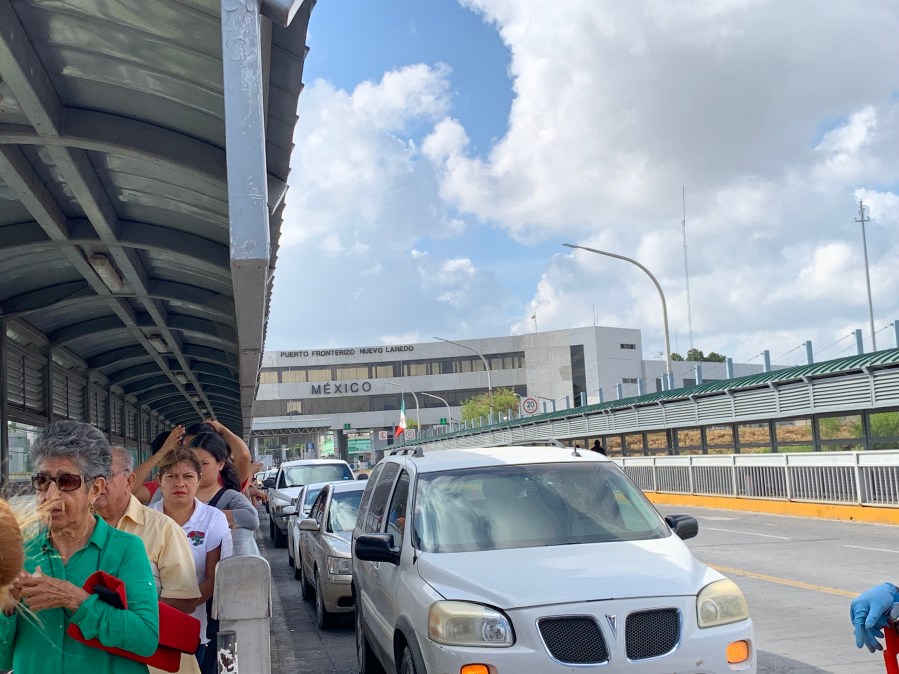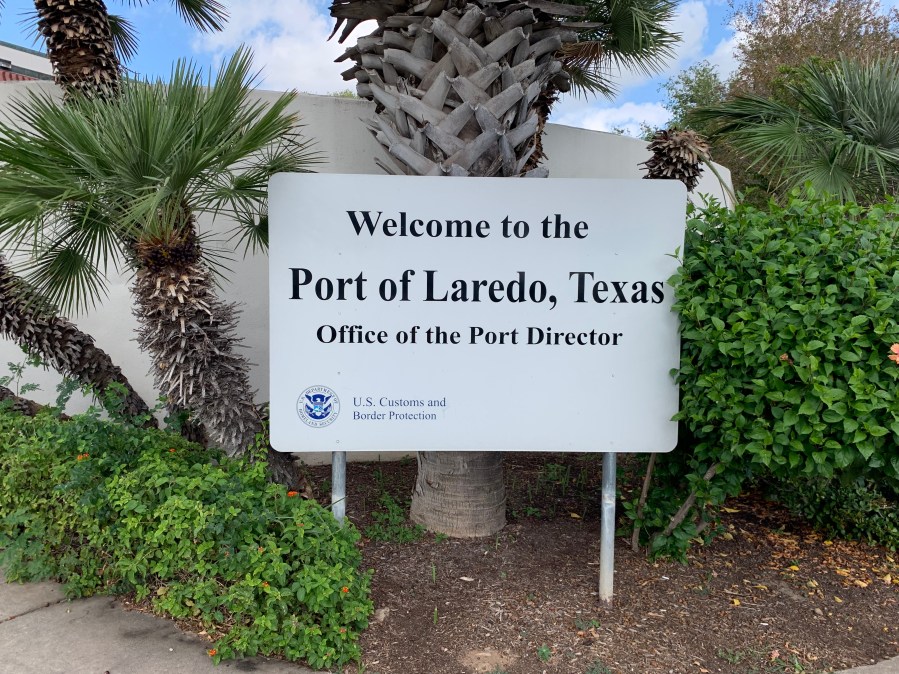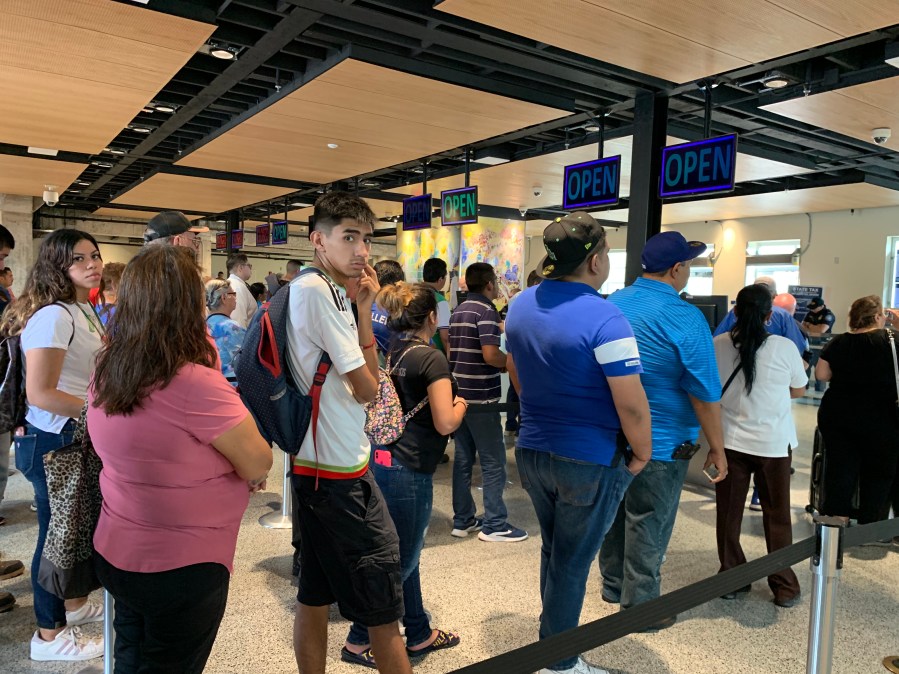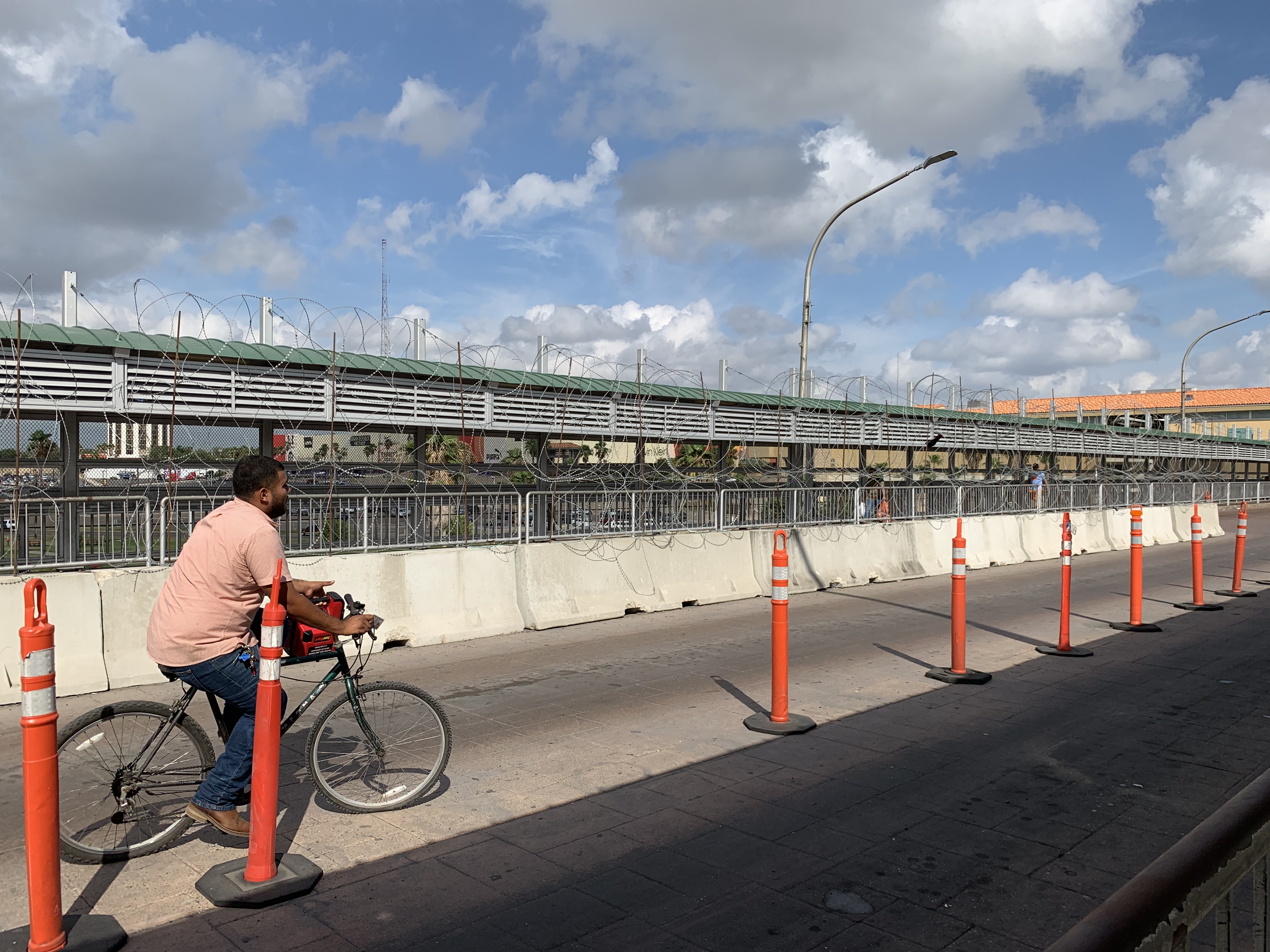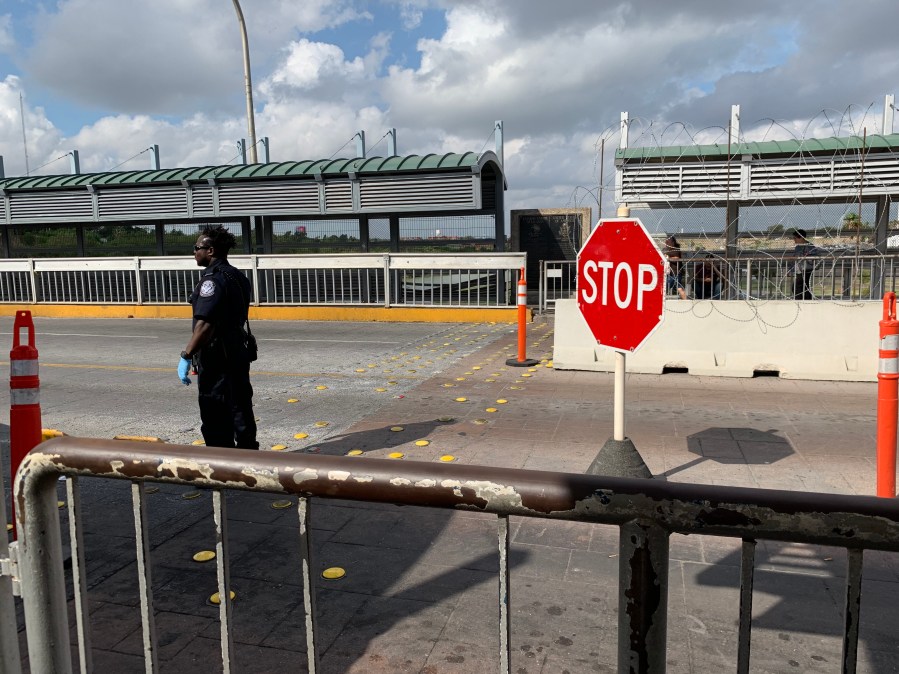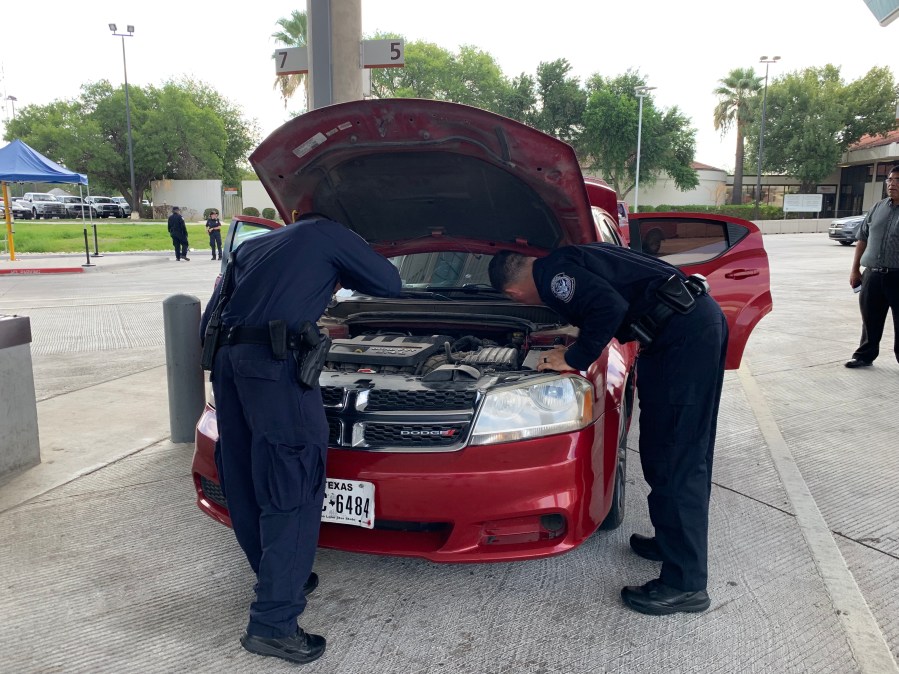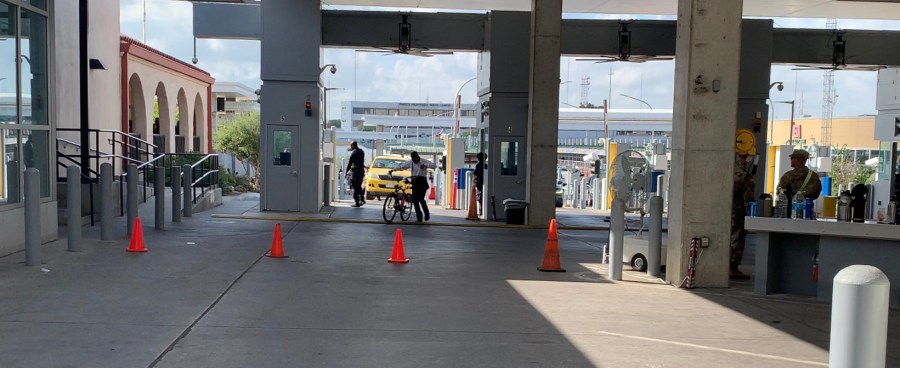LAREDO, Texas (Border Report) — Unbeknownst to many in the United States, the Laredo ports of entry — a sprawling system in South Texas comprised of four vehicular international bridges, one international rail bridge and one airport — surpassed the Los Angeles ports as having the most incoming value of goods into the United States in March.
That month, the Port of Laredo’s overall trade value was $20.09 billion. The Port of Los Angeles’ was $19.66 billion, according to Forbes.com.
It was an almost 10 percent increase in trade for Laredo from February to March, while Los Angeles’ decreased 10 percent. Much of that had to do with a trade war that was occurring at the time between the United States and China. The Port of Los Angeles is dependent on China for its trade industry, which had been down 17 percent during that time in the year, according to Ken Roberts, a trade analyst for Forbes who conducted the study.
Laredo’s port is dependent upon Mexico for international trade and that was booming, up 1.5 percent. Roberts reported.
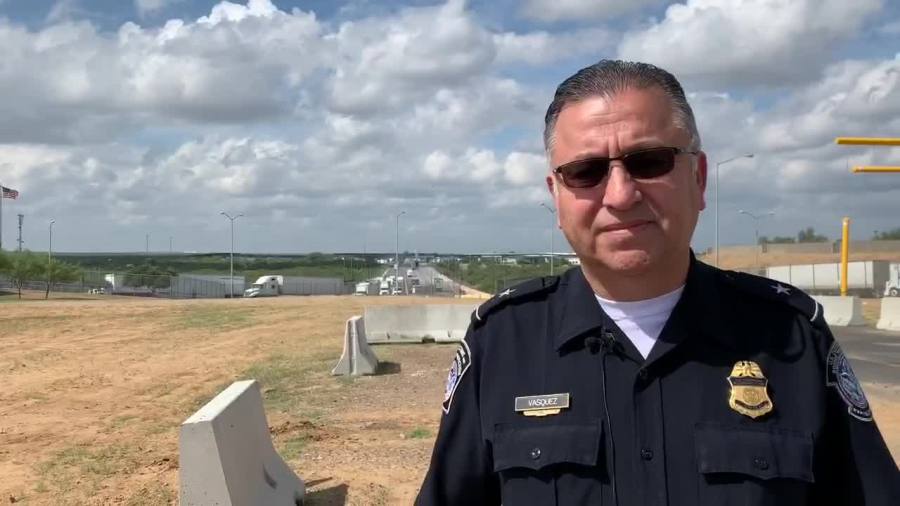
The news was short-lived, but nevertheless, it seemed to even take U.S. Customs and Border Patrol officials by surprise. They smiled and shook their heads at the No.1 ranking, which only lasted three weeks, but elevated this city’s economic profile on a worldwide stage.
“We surpassed L.A. and we became the No. 1 port in the nation,” Javier Vasquez, U.S. Customs and Border Protection’s assistant port director for trade operations in Laredo, said as he stood on a dirt road area at the World Trade Bridge. It’s a commercial vehicle-only port of entry where they soon plan to add four more lanes.
“We were No. 1 for three weeks,” said Vasquez, who took Border Report on a tour of the massive port infrastructure system on Monday morning. “We’re back at being No. 2.”
He quickly added, however, that the World Trade Bridge still is the No. 1 inland port in the nation.
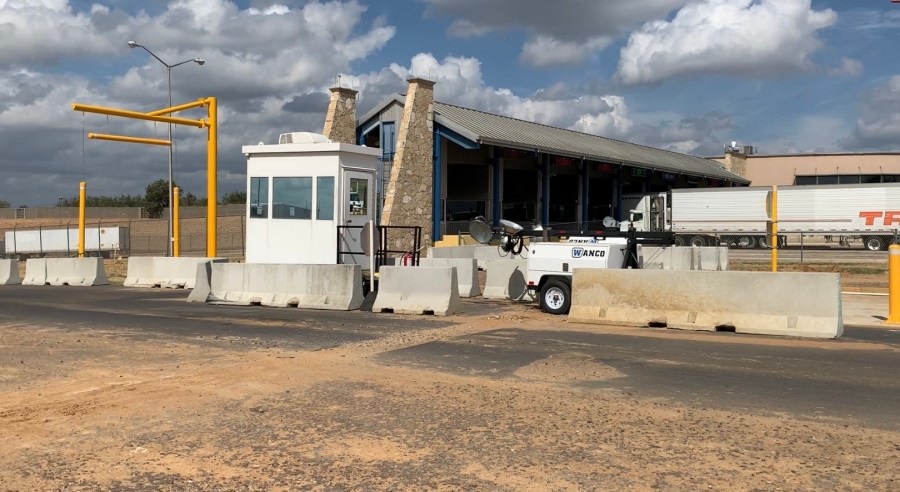
That means that a tremendous volume of commercial cargo comes through this area.
Daily, Laredo ports process 7,000 trucks. More than 2.5 million per year cross through the Laredo ports of entry; 2.1 million per year cross through the World Trade Bridge, he said.
As he spoke, hundreds of 18-wheelers waited in orderly lines, trying to stream their way through Laredo and onto U.S. Interstate 35, which will quickly take them to points north.
Wait times could be 90 minutes, and the line could extend for more than hal a mile, Vasquez said.
But that’s not all: the Laredo railroad port is currently No. 2 in the nation, processing 48 percent of the rail cars through Laredo, Vasquez said.
“So it also has a good impact,” Vasquez said.
All told, the ports of Laredo have collected $1.6 billion in duties, taxes and fees, Vasquez said.
Funds for expanding Laredo ports
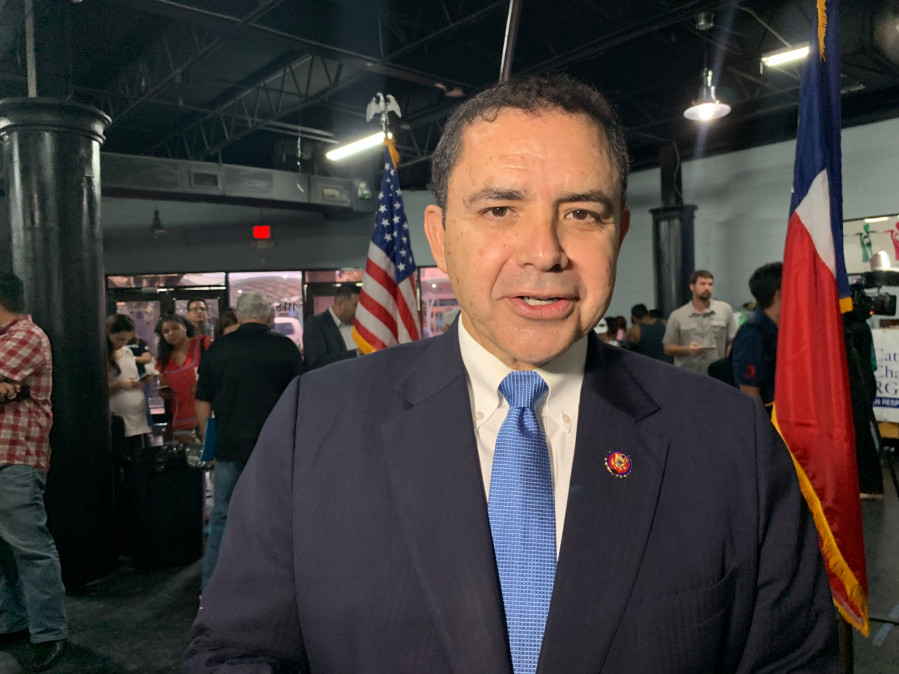
U.S. Rep. Henry Cuellar, D-Texas, who represents Laredo, announced last month that he helped to secure millions of dollars in funding for expansion projects for the Laredo ports of entry.
Read a previous Border Report story on Cuellar’s efforts to improve trade in South Texas.
Cuellar, who sits on the House Appropriations Committee and is vice chairman of the House Appropriations Subcommittee on Homeland Security, helped to get lawmakers to fund “more than $117 million for the completion of the Puente de Las Americas Bridge I, and the Juarez-Lincoln International Bridge II expansion and modernization projects,” his office wrote in a newsletter.
Cuellar helped to appropriate nearly $87 million for the Juarez-Lincoln International Bridge renovation, which port officials told Border Report was completed in April.
The newly renovated Juarez-Lincoln International Bridge is a transit route for passenger buses.
More than 110 bus companies transit through the Laredo port; on average 125 buses arrive at the Juarez-Lincoln Bridge daily bringing about 5,600 passengers, CBP officials said.
“The Juarez-Lincoln International bridge is critical to our community and nation’s economic prosperity,” Cuellar said in a news release. “This expansion will grow our local economy, and greatly enhance trade and travel on the U.S.-Mexico border.” He added that this project “is one of the most important infrastructure projects undertaken in Texas.”
Sandra Sanchez can be reached at SSanchez@BorderReport.com. She is traveling with a crew of BorderReport.com reporters on a 10-day tour of the Southwest border from San Diego to Brownsville, Texas.
Visit the BorderReport.com homepage for the latest exclusive stories and breaking news about issues along the United States-Mexico border
